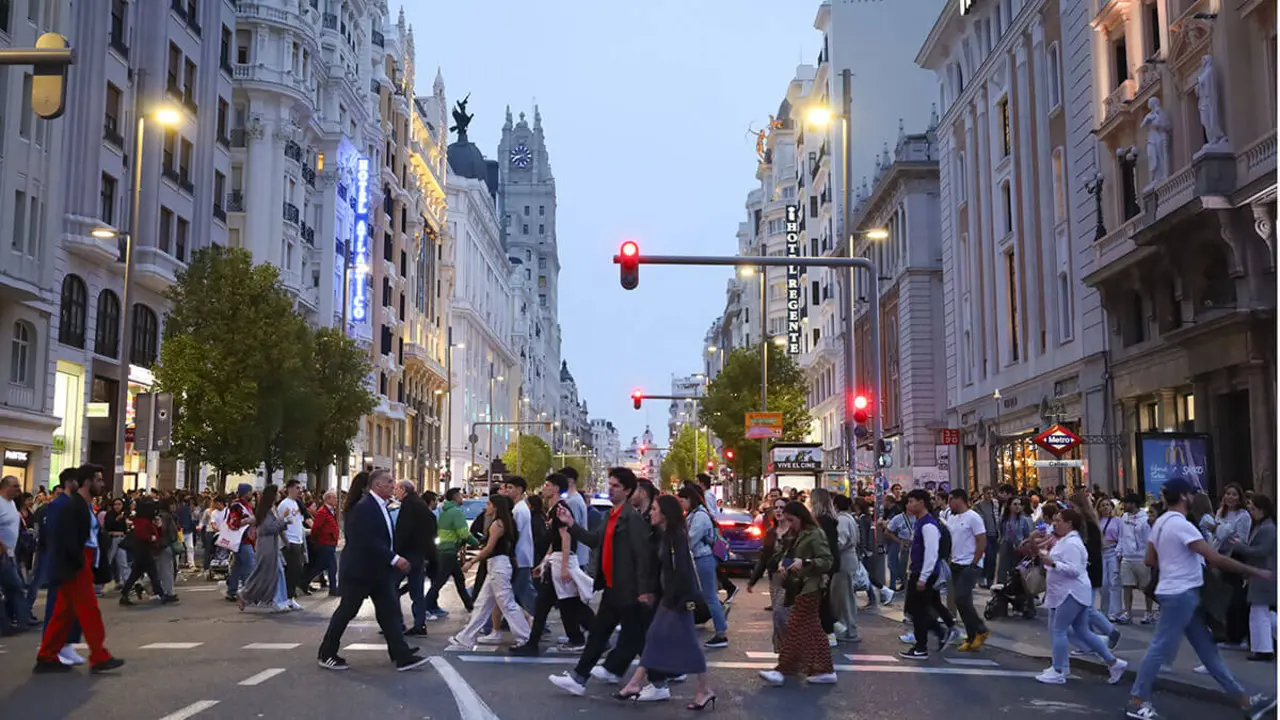Libya's oil: an added spoil in the battle for control of Tripoli

For the third time this year, violence has returned to the streets of the Libyan capital Tripoli. The resurgence of tensions between the two heads of a two-headed government - the Government of National Unity (GNU), based in Tripoli itself, led by Abdul Hamid Dbeibé, and the Misrata government, led by the parallel Prime Minister Fathi Bashaga - has once again made weapons the preferred option for tackling an institutional deadlock that has lasted more than a year.
But in this scenario, where it seems that the seizure of the capital is now a mandatory requirement, there is another issue of particular strategic relevance and political interest for both sides. Oil production.

The North African country forms part - along with Saudi Arabia, Algeria, Qatar, Ecuador, the United Arab Emirates, Kuwait, Indonesia, Iraq, Iran, Nigeria and Venezuela, among others - of the Organisation of Petroleum Exporting Countries (OPEC), which, given the protraction of the Russian-Ukrainian conflict, is currently dealing with international pressure to increase production and daily crude oil exports.
However, Libya's oil supply seems to be hanging on by a thread. Although the country has averaged around 1.3 million barrels per day (bpd) of oil production in recent years - the main source of Libya's export revenue - the warring political factions in the conflict seem to have no reservations about using oil production as a weapon against their rivals.

Since 2011 - when Muammar al-Gaddafi's government was overthrown - oil installations have been the target of attacks, the scene of clashes and a bargaining chip for political blackmail between rival executives who only aspire to take another step on the political chessboard of a war without end. Especially from the side of Marshal Khalifa Haftar, whose influence covers most of the territories where the oil fields and ports of exit are located. In this sense, 2020 witnessed one of the most important blockades in the country's history: for months, military forces aligned with Haftar's side paralysed several oil fields and installations.
Something similar happened last April, when Libya's oil and gas minister, Mohamed Aoun, reported that well closures and port blockades were causing losses of up to $50 million a day. Oil production fell from around 1.2 million barrels a day to 500,000 barrels a day. More than half of the total. Since then, extraction and export levels have undergone a slow recovery process, as suggested by an announcement by the state-owned National Oil Corporation (NOC) in July, when it explained that daily production stood at 860,000 million bpd.

Today, these figures are estimated at 1.2 million barrels of oil per day (since the appointment of a new NOC director, sympathetic to Haftar, by Tripoli's prime minister, Dbeibé, led to the end of the oil blockade), but the resumption of conflict in the capital is once again jeopardising the stability of the main export product. Several observers and analysts are of the opinion that until one of the two factions manages to take full control of the country and all the portfolios that this entails - including oil - the fighting will not cease.
This is largely due to the fact that the profits obtained from oil exports are automatically paid into Libya's Central Bank through established international agreements, so that in order to put pressure on the Tripoli government - led by Dbeibé - the strategy of its detractors is to directly interrupt production. And these revenues, in themselves, are part of the "spoils" controlled by whichever faction emerges victorious in the 11-year civil, political and military conflict.

Since the country declared a ceasefire to the offensive launched by Marshal Haftar in 2019, Libya has been mired in an attempt at a UN-sponsored democratic transition process that never seems to end. The roadmap originally envisaged for 2020 was the appointment of an acting prime minister (who turned out to be Abdul Hamid Dbeibé) to oversee preparations for national elections that would lead to the first democratically elected executive.
However, the situation has not changed much since then. The elections, originally scheduled for January and then postponed to June, never took place. And, according to eastern Libyan factions, Dbeibé's mandate had expired, so in parallel, Fathi Bashaga was appointed head of the executive, based in the city of Misrata, near what is known as the Oil Crescent.

Now, in the midst of negotiations between the two sides and pressure - from Haftar and the resident of the Tobruk parliament, Aguila Saleh - to appoint a new transitional government, some Libyan politicians are already talking about the possibility of drawing up a new executive that all sides can accept. This, they believe, might not be welcomed by Dbeibé.
In this zero-sum game, fears are now growing once again that the upsurge in violence in Tripoli could turn into a nationwide battle that could lead to disruptions in oil extraction and export.








